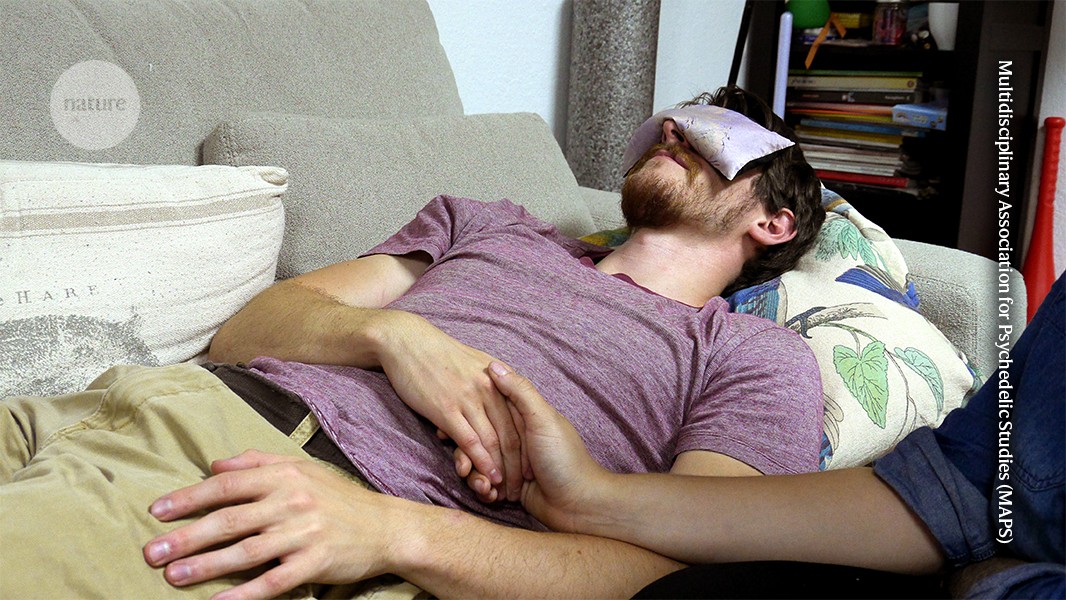But Marks points out that the FDA typically follows the advice of its independent advisory committees — and the one that evaluated MDMA in June overwhelmingly voted against approving the drug, citing problems with clinical trial design that the advisers felt made it difficult to determine the drug’s safety and efficacy. One concern was about the difficulty of conducting a true placebo-controlled study with a hallucinogen: around 90% of the participants in Lykos’s trials guessed correctly whether they had received the drug or a placebo, and the expectation that MDMA should have an effect might have coloured their perception of whether it treated their symptoms.
Another concern was about Lykos’s strategy of administering the drug alongside psychotherapy. Rick Doblin, founder of the Multidisciplinary Association for Psychedelic Studies (MAPS), the non-profit organization that created Lykos, has said that he thinks the drug’s effects are inseparable from guided therapy. MDMA is thought to help people with PTSD be more receptive and open to revisiting traumatic events with a therapist. But because the FDA doesn’t regulate psychotherapy, the agency and advisory panel struggled to evaluate this claim. “It was an attempt to fit a square peg into a round hole,” Marks says.



Yeah, that’s the thing with placebo. It’s surprisingly effective, and separating the psychological effect from actual chemistry can be very tricky. If most participants can correctly identify if they’re bing fed the real drug or a placebo, it makes it impossible to figure out how much each effect contributes to the end result. Ideally, you would only use effective medicine that does not need the placebo effect to actually work.
Imagine, if all medicine had lots of placebo effect in them. How would you treat patients who are in a coma or otherwise unconscious?
So, let’s just use an example of a pill that treats headaches so I can understand, because I’m kinda stupid.
It works super well, and most patients taking it in double blind trials find it relieves headache pain considerably. Why is it a bad thing, to the point of rejecting it as a treatment, that the patient feels that the pill is working very well and has concluded on their own that this is probably not a placebo?
I can understand a patient being misled by coincidence, but surely a measurable, verifiable, and repeatable benefit to the patient compared to pills without medicinal ingredients would warrant a different conclusion, wouldn’t it?
In your coma scenario, I’m sure there is a statistical analysis that can be performed to show with a degree of certainty that a specific medication has a higher likelihood of being effective than a placebo in a controlled experiment.
I commented on this same story a while ago when it first broke that it was likely to be rejected and I don’t think anyone explained it in the thread.
The problem is that it’s not a double blind trial because the participants can tell whether they are on it. The placebo effect is also a problem because there is no real control group.
But why is that such a problem that it’s worth rejecting what is otherwise widely considered an effective treatment?
I am fundamentally not understanding the inherent risk to patients resulting from the structure of the study that is apparently so harmful that it must not continue.
Why is being able to tell that your medication is working a negative thing in a study? And such a negative thing that it apparently negates all other positive aspects of the medication.
The problem is that you can’t tell if it’s truly working due to the placebo effect.